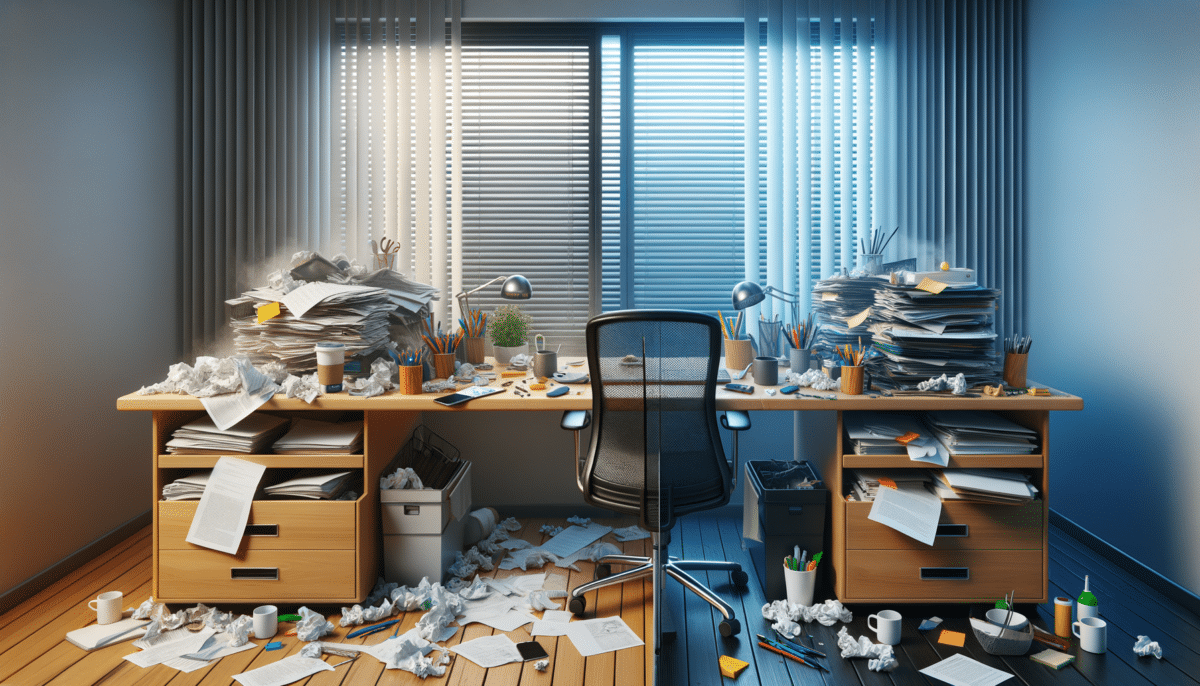The Importance of Office Cleaning
Office cleaning is not just about maintaining a tidy space; it is a crucial factor in enhancing productivity and ensuring a healthy work environment. A clean office reduces the spread of germs, which can decrease the number of sick days taken by employees. According to a study by the American Journal of Infection Control, regular cleaning can reduce the presence of viruses on surfaces by up to 80%. This highlights the importance of maintaining a clean workspace for health reasons alone.
Moreover, a clean office contributes to a positive work atmosphere. Employees tend to feel more motivated and focused when their surroundings are organized and clean. A cluttered or dirty environment can be distracting and overwhelming, leading to decreased efficiency. In fact, a study by Harvard Business Review found that people who work in clean spaces are more likely to perform better and show increased job satisfaction. This suggests that regular office cleaning can have a direct impact on employee morale and productivity.
Finally, maintaining a clean office is essential for making a good impression on clients and visitors. A tidy and well-organized office reflects professionalism and attention to detail, which can enhance the reputation of the business. Clients are more likely to trust and engage with companies that prioritize cleanliness and organization. Therefore, investing in regular office cleaning is a wise decision for any business looking to succeed in today’s competitive market.
Understanding Desk Clutter
Desk clutter is more than just a messy workspace; it can significantly impact your mental clarity and productivity. Clutter on a desk can be distracting, making it difficult to concentrate on the task at hand. According to a study by Princeton University Neuroscience Institute, clutter competes for your attention, which can result in decreased performance and increased stress levels. This highlights the need to address desk clutter for better focus and efficiency.
There are several common sources of desk clutter, including unnecessary paperwork, office supplies, and personal items. These items can accumulate over time, creating a chaotic environment. To combat this, it’s important to regularly evaluate what is essential and what can be discarded or stored elsewhere. Implementing a system for organizing documents and supplies can help maintain a clutter-free desk and improve overall workflow.
In addition to affecting productivity, desk clutter can also impact your mood and mental health. A cluttered desk can lead to feelings of overwhelm and anxiety, as it serves as a constant reminder of unfinished tasks and disorganization. By taking the time to declutter and organize your desk, you can create a more calming and focused work environment, ultimately leading to improved mental well-being and job satisfaction.
Strategies for Effective Office Cleaning
Implementing effective office cleaning strategies is crucial for maintaining a clean and organized workspace. One of the key strategies is to establish a regular cleaning schedule. This ensures that cleaning tasks are consistently performed, preventing the build-up of dirt and clutter. A well-planned cleaning schedule should include daily, weekly, and monthly tasks to address different areas of the office.
Daily tasks might include wiping down surfaces, emptying trash bins, and organizing common areas. Weekly tasks could involve vacuuming carpets, disinfecting high-touch surfaces, and restocking cleaning supplies. Monthly tasks might include deep cleaning tasks such as washing windows, cleaning air vents, and organizing storage areas. By breaking down cleaning tasks into manageable intervals, office cleaning becomes less daunting and more effective.
Another strategy is to involve employees in the cleaning process. Encouraging employees to take responsibility for their own workspaces can promote a culture of cleanliness and organization. Providing the necessary cleaning supplies and resources can empower employees to maintain their areas, leading to a more cohesive and clean office environment. Additionally, offering incentives or recognition for maintaining a clean workspace can motivate employees to take part in the cleaning efforts.
Tips for Reducing Desk Clutter
Reducing desk clutter is an essential step in creating a more organized and productive workspace. One effective tip is to adopt the “one in, one out” rule. This means that for every new item brought onto the desk, an old item should be removed. This helps prevent unnecessary accumulation and encourages mindful consideration of what is truly needed on the desk.
Another tip is to utilize organizational tools such as trays, file organizers, and drawer dividers. These tools can help keep items in designated spaces, reducing the risk of clutter spreading across the desk. Labeling these organizers can also aid in quickly locating items, saving time and reducing frustration.
Regularly scheduling time to declutter the desk is also important. Setting aside a few minutes each week to tidy up can prevent clutter from becoming overwhelming. During this time, assess the necessity of each item on the desk and remove anything that no longer serves a purpose. This simple habit can lead to a more streamlined and efficient workspace.
Creating a Clutter-Free Office Culture
Creating a clutter-free office culture involves more than just individual efforts; it requires a collective commitment from the entire team. One approach is to establish clear guidelines and expectations for maintaining a tidy workspace. This can be communicated through regular meetings, newsletters, or office signage.
Encouraging open communication about cleanliness and organization can also foster a clutter-free culture. Employees should feel comfortable discussing their needs and challenges related to maintaining a tidy workspace. Providing support and resources, such as additional storage solutions or professional organizing services, can help address these challenges and promote a more organized office environment.
Finally, celebrating and recognizing efforts to maintain a clutter-free office can reinforce positive behaviors. This could include acknowledging employees who consistently keep their workspaces tidy or organizing office-wide cleaning events. By creating a culture that values cleanliness and organization, businesses can enjoy a more productive and harmonious work environment.
